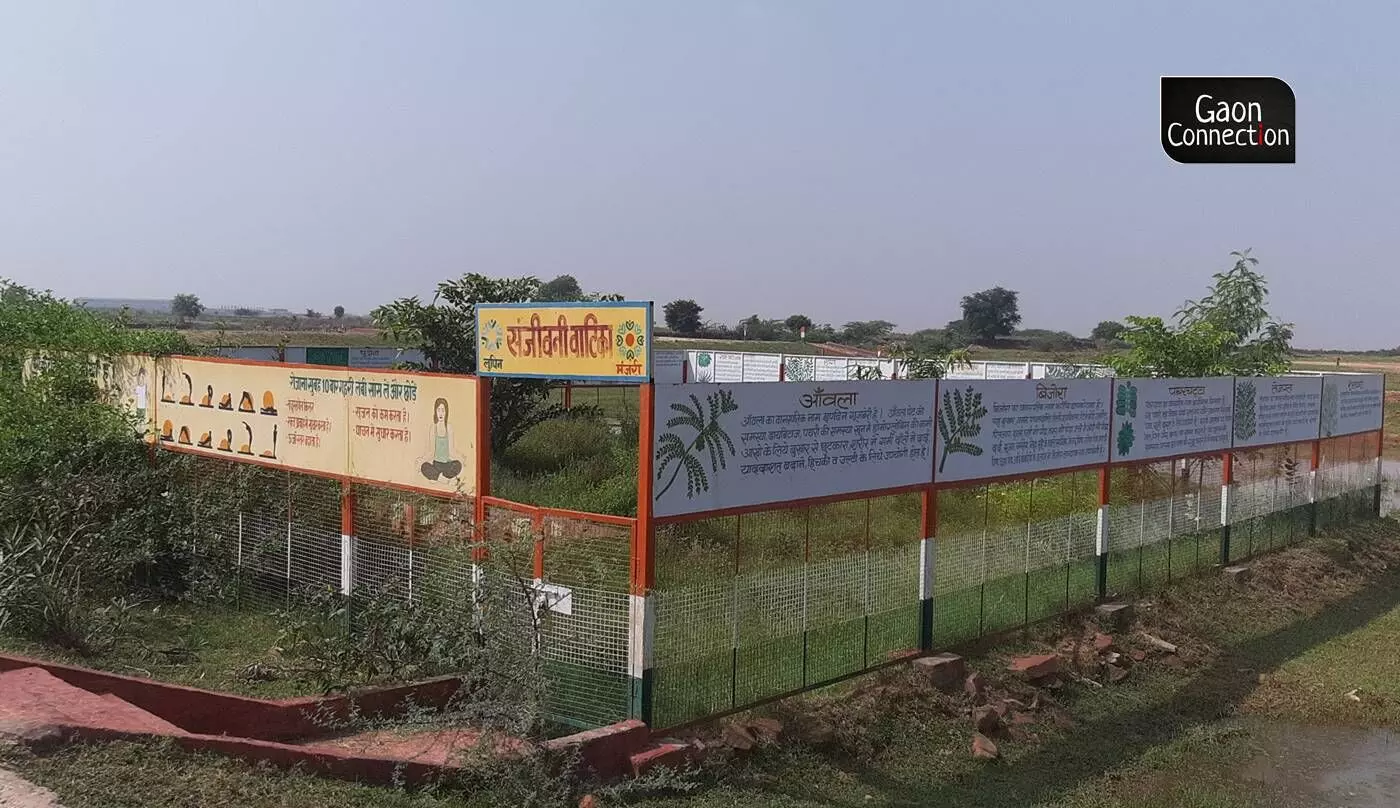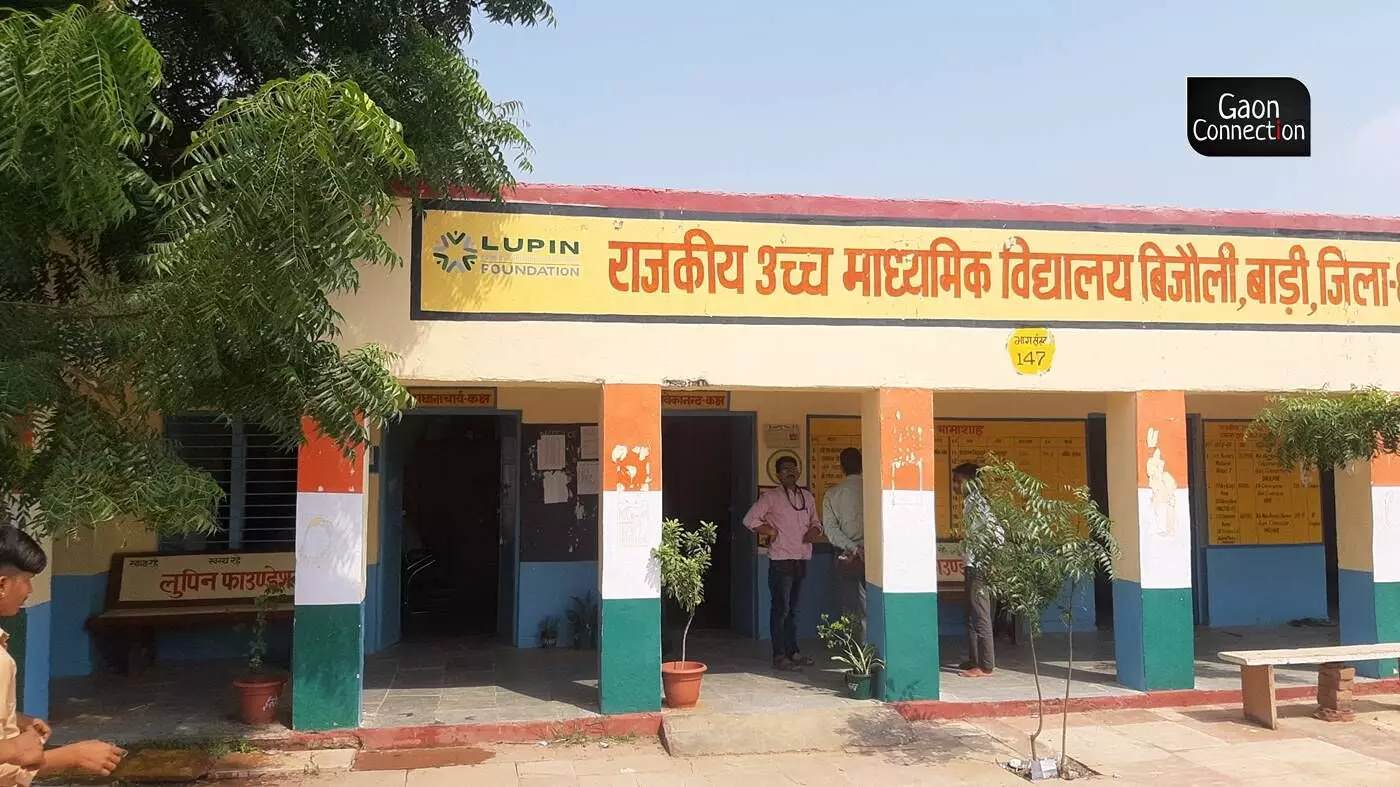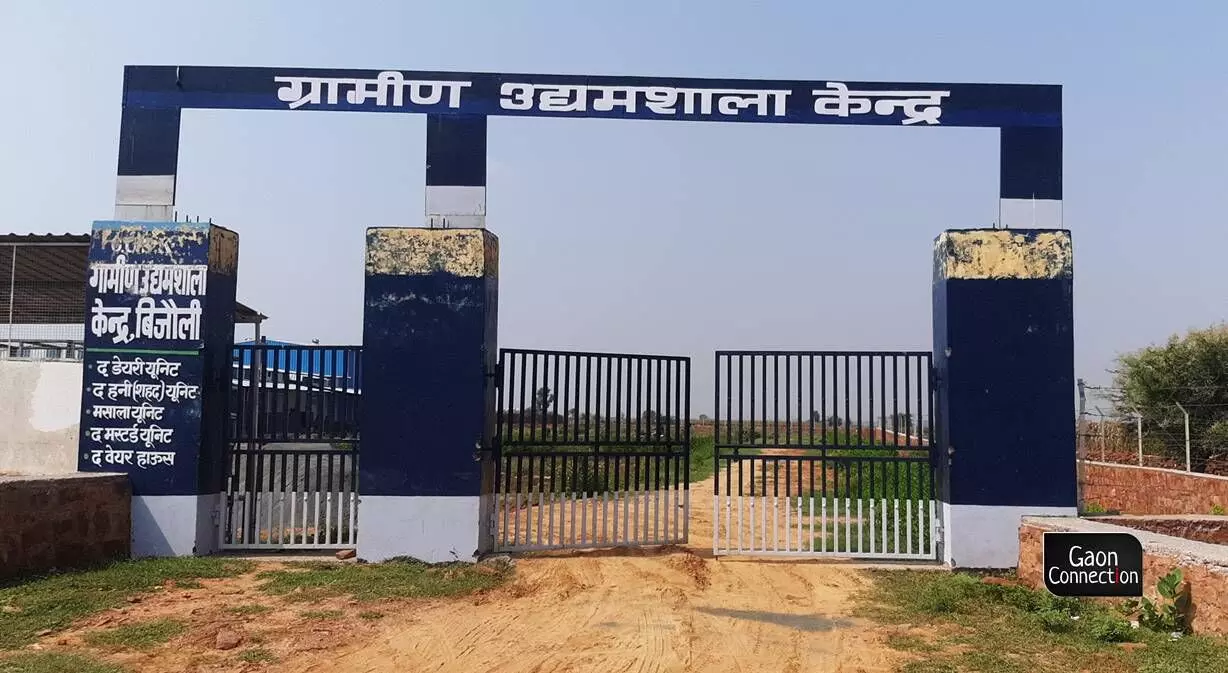Bijauli (Dholpur), Rajasthan
Bijauli village in Dholpur district of Rajasthan was nominated as a model village by the district administration last year, in 2022. The village is receiving accolades for the tremendous development work it has undertaken in several areas including providing more livelihood opportunities, setting up skill training centres, improving education facilities, dealing with water shortage problems, sanitation and so on.
But a few years ago, the condition of the village was deplorable. There was water shortage, poor sanitation and lack of livelihood avenues for its inhabitants.
Things began to change when village inhabitants who had migrated to bigger cities in search of better earning opportunities, began to return to Bijauli, that is about 285 kilometres away from Jaipur, the state capital, during the pandemic. The same year, in 2020, the Gramin Udhamshala Kendra, was set up in the village.
This centre was set up by the non-profit Manjari Foundation based in Dholpur, and was funded by HDFC as part of its Corporate Social Responsibility. The Gramin Kendra provided employment to 20 women and four men from the village at the centre, which has become a hub for agriculture and dairy products such as honey, ghee, paneer, spices, mustard oil, etc.

A herbal garden having various kinds of flowers and medicinal plants was constructed at Sanjivani Vatika, near the pond.
According to Vinod Kumar, team leader at Manjari Foundation, nearly 5,000 villagers benefit from the centre as they can now sell their farming and dairy products directly without a middleman. The centre was set up at a cost of about Rs 70 lakh, while it deals in goods worth Rs 5 crore every year, he said. The products are sent to the shopping malls and stores in big cities and are also available online.
Also Read: Rural manifestos, self reliance, development: A peek into the concept of a ‘model village’
Women in the forefront
“Bijauli was an underdeveloped and a neglected village and that is why it was selected to be groomed into a model village in 2020. Villagers were deprived of adequate water facilities, jobs and there were no proper roads, or sanitation,” Vinod Kumar told Gaon Connection. But all that is a thing of the past now.
Laxmi Devi, a local village woman, works at the Gramin Udhamshala Kendra. “I was a daily wage labourer struggling to get a square meal a day. But now I work at the kendra and support my family,” Laxmi Devi from Bijauli, told Gaon Connection. She along with other women from the village were trained in operating machinery at the centre that processes food products such as paneer, ghee and sattu.
“We now operate the machines with ease and it has given us an additional source of income,” Pinki Devi, another village inhabitant, told Gaon Connection. “On an average each of us earn about Rs 6, 000 a month. And each day we produce a total of 2.5 quintals of products, including 15 kgs of ghee and 150 kgs of paneer,” Pinki Devi said (1 quintal = 100 kgs).
“Farmers in this village and other nearby villages are happy that they can sell milk and other produce to the centre for a fair price. They also do not have to spend money on transporting their produce long distances as for most of them, the centre is just a walk away,” Sarikh Khan, manager in Manjari Foundation, told Gaon Connection.
The products from the Gramin Udhamshala Kendra travel all the way to NOIDA, New Delhi and several parts of Madhya Pradesh, he said. “Products are also available on popular online sites under the Katori brand,” the manager said.
There is a 13-member marketing team that ensures the smooth sale of four kinds of honey, two types of mustard oil, various kinds of desi ghee, paneer, mawa and butter, all under the Katori brand, Khan added.

The Rajkiya Uchcha Madhyamik Vidyalaya, Bijauli, its only school was established in 1964.
From neglect to development
The journey to becoming a model village has been a tough one, but now, Bijauli has facilities that any village in the country can be proud of.
Manjari Foundation is working under the Akanshi Jila Karyakram, the Aspirational District Programme launched by the central government in 2018. Bijauli was selected to become a model village. Akanshi Jila Karyakram aims to transform districts that have lagged behind in development.
Aspirational districts are those that are affected by poor socio-economic indicators. And the programme focuses on improving health and nutrition, education, agriculture and water resources, financial inclusion and water resources in these districts.
Also Read: Rajasthan: Digging ponds to capture rainwater helps Dholpur farmers cultivate wheat for the first time
A training and learning facility was set up at the Rajiv Gandhi panchayat centre in Bijauli in 2020 to provide the village youth with vocational training.
To tackle the water-problem in the village, the Manjari Foundation enabled better water supply. “The 450 households in Bijauli had to depend on water brought in tractors from Bari that is 20 kilometres away,” Hari Shankar Khuswaha, a village inhabitant, told Gaon Connection.

The products from the Gramin Udhamshala Kendra travel all the way to NOIDA, New Delhi and several parts of Madhya Pradesh
“The pond and well in the village had not been cleaned for years, creating problems for both humans and cattle in the village,” he added.
Manjari Foundation along with Lupin Human Welfare and Research Foundation has renovated a pond in Bijauli that is 1.5 bigha (1 bigha = 0.3306 acre or 40,500 square feet). Water from the pond is now being used by local residents and the animals. The cleaning up and repairs carried out on the pond and the well has raised the water levels and there are no more tractors carrying water to the village inhabitants.
The well was repaired, ensuring drinking water for the villages, and also enabling a rise in the water levels in the soil. This has led to the handpump in the villages to provide water. Earlier, they were useless as the water table was low and the summers dried them out completely. A herbal garden having various kinds of flowers and medicinal plants was constructed at Sanjivani Vatika, near the pond. A temple nearby was also repaired and restored.
The Rajkiya Uchcha Madhyamik Vidyalaya, Bijauli, its only school was established in 1964. But thanks to the model village programme and the work put in by the Foundation, it has received a tremendous fillip.
The infrastructure in the school has been improved with the addition of a library, more classrooms and toilets, the performance of the students in the class 10 and 12 exams last year was commendable, and the dropout rate has plummeted, Rajendra Kumar Sharma, the principal of the school, told Gaon Connection.
Healthy children and women
Manjari Foundation and Lupin Foundation along with HDFC have also transformed the Adarsh Anganwadi Kendra in Bijauli, called Bal Vatika Nandu Ghar. Though it was set up 35 years ago, it was given a shot in the arm in 2020.
“We set up a kitchen garden in 2020 to provide children with nutritious vegetables and fruits,” Birwati Devi, who works at the centre, told Gaon Connection. The children there also had educational toys to play with at the centre, she said.
“Pregnant women and children up to age of three, take home ration while children between three to six years of age get nutritious food at the centre,” Birwati Devi said. Meals included sweet daliya, moong dal khichdi, plain wheat daliya, upma, sweetened rice crisps, and salted rice crisps.
Karyakarta at anganwadi, Sunita Devi, said, “The centre has maximum registration with 52 children in the panchayat though average registration is 25 children in anganwadi elsewhere in Rajasthan.”
Children below six are being provided elementary education through games. On Tuesday and Friday medicines and iron pills are provided to malnourished women, between 18 and 35 years of age, by the Auxiliary Nurse Midwife (ANM), the anganwadi karyakarta added.




















